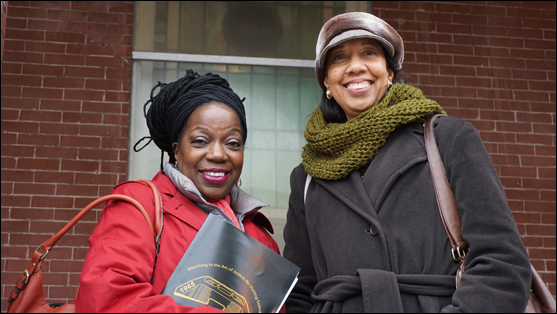
A new ethos
How the UUA is promoting Beloved Community today.
As the Unitarian Universalist Association’s director of Multicultural Growth and Witness, I know that the values that guide the day-to-day work of the UUA’s social justice staff are not always evident to the larger UU community. Our work today is rooted in the understanding that systemic racism intersects with every current UU witness and advocacy priority, from climate change to escalating inequality, from immigration reform to LGBTQ equity, from reproductive justice to voting rights. And so the UUA has moved from emphasizing programs specifically designated as “anti-oppression/multicultural” to applying anti-oppression/multicultural values to every aspect of our work. We see anti-oppression work as belonging to every department, just as it truly belongs to every congregation.
Last year I described the evolution of UUA anti-oppression/multicultural work in a report to the UUA Board of Trustees as a shift “from programs to ethos”. Working from an anti-oppression/multicultural ethos requires applying a systemic analysis of racism and oppression not only to the social justice work we do, but also to every aspect of UU community. Systemic analysis includes UUs finding our place in the narrative of racism—personally and institutionally—and not avoiding conversations about race, privilege, and white supremacy as we engage in multicultural ministries and social justice movements. We offer a variety of resources to help UU congregations and individuals bring this ethos to their own work, such as the Jubilee Anti-Racism Training workshop, the Building the World We Dream About curriculum, and facilitators to conduct the Intercultural Development Inventory. For more of the resources we offer, visit UUA.org/multiculturalism.
Whether the vision is for a more multicultural Unitarian Universalism or a more compassionate and just world, the dream of Beloved Community articulated by the Rev. Dr. Martin Luther King Jr. will never be achieved without participation in social justice movements led by communities who most directly experience oppression. Another way the UUA’s anti-oppression/multicultural work has evolved is our emphasis on leadership development and partnership. UU participation in the Day of Non-Compliance in Phoenix, Arizona, or the Mass Moral March in Raleigh, North Carolina, or the Ferguson solidarity actions coordinated with UU clergy in Missouri are examples of the UUA partnering to work with UUs rather than on behalf of UUs. They are also examples of empowering local leaders and coalition partners.
Ideally the vision of Beloved Community calls on UUs to engage in multicultural ministries and social justice everywhere and every day. The reality is that more often crises call us to Selma, Phoenix, Raleigh, Ferguson, and beyond. Wherever we are called as a people, the UUA is focusing explicitly on incorporating an anti-oppression/multicultural ethos into our faith development, leadership, and witness and advocacy resources so that we can empower UUs to build the world they dream about.
Photograph (above): Janice Marie Johnson, UUA director of Multicultural Ministries and Leadership, and Taquiena Boston, director of Multicultural Growth and Witness, outside Brown Chapel AME Church in Selma, Alabama (© Christopher L. Walton). This article appeared in the Spring 2015 issue of UU World (pages 33-34). See sidebar for links to related resources.
Comments powered by Disqus






